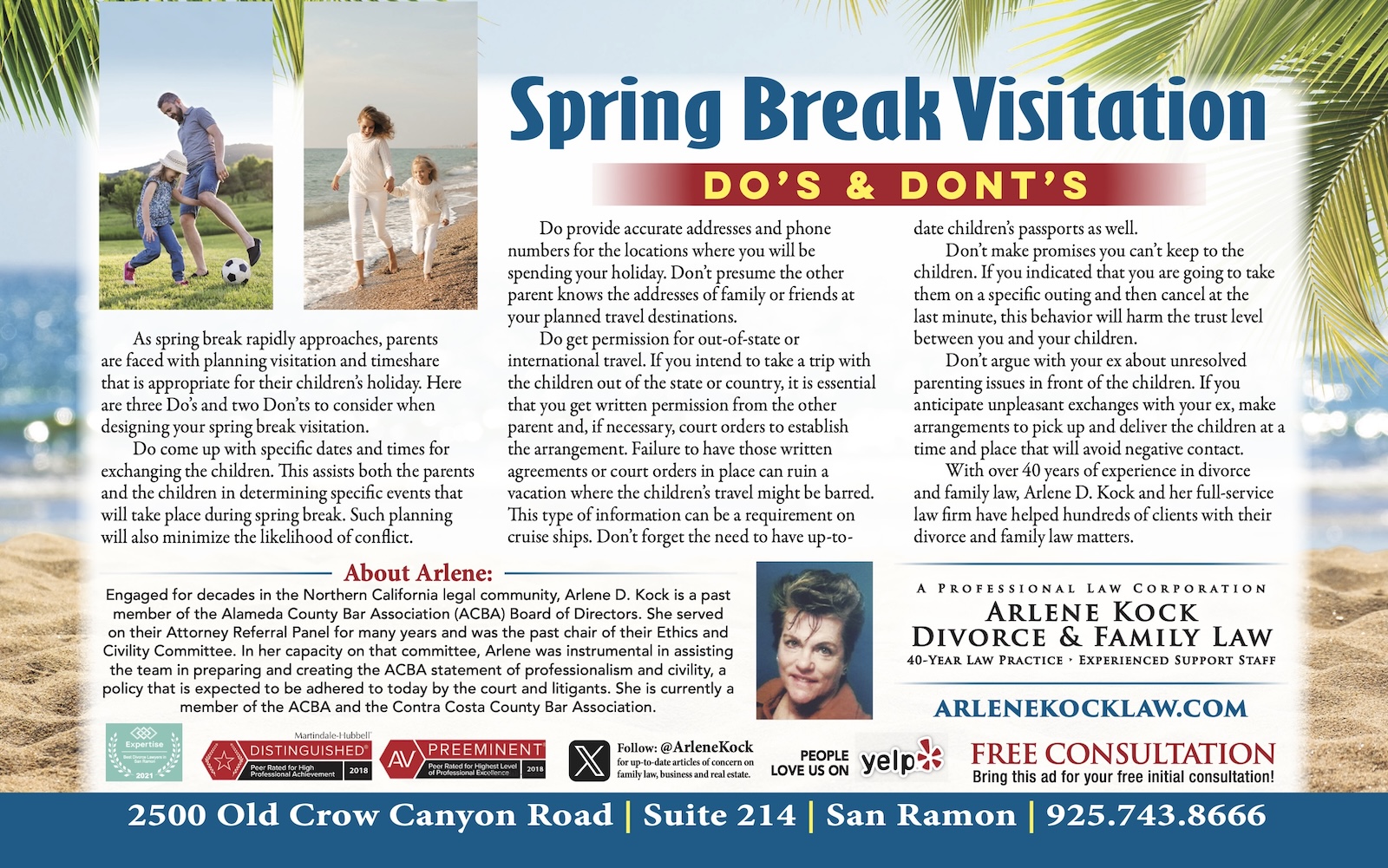As spring break rapidly approaches, parents are faced with planning visitation and timeshare that is appropriate for their children’s holiday. Here are three Do’s and two Don’ts to consider when designing your spring break visitation.
Do come up with specific dates and times for exchanging the children. This assists both the parents and the children in determining specific events that will take place during spring break. Such planning will also minimize the likelihood of conflict.
Do provide accurate addresses and phone numbers for the locations where you will be spending your holiday. Don’t presume the other parent knows the addresses of family or friends at your planned travel destinations.
Do get permission for out-of-state or international travel. If you intend to take a trip with the children out of the state or country, it is essential that you get written permission from the other parent and, if necessary, court orders to establish the arrangement. Failure to have those written agreements or court orders in place can ruin a vacation where the children’s travel might be barred. This type of information can be a requirement on cruise ships. Don’t forget the need to have up-to-date children’s passports as well.
Don’t make promises you can’t keep to the children. If you indicated that you are going to take them on a specific outing and then cancel at the last minute, this behavior will harm the trust level between you and your children.
Don’t argue with your ex about unresolved parenting issues in front of the children. If you anticipate unpleasant exchanges with your ex, make arrangements to pick up and deliver the children at a time and place that will avoid negative contact.
With over 40 years of experience in divorce and family law, Arlene D. Kock and her full-service law firm have helped hundreds of clients with their divorce and family law matters.
About Arlene
Engaged for decades in the Northern California legal community, Arlene D. Kock is a past member of the Alameda County Bar Association (ACBA) Board of Directors. She served on their Attorney Referral Panel for many years and was the past chair of their Ethics and Civility Committee. In her capacity on that committee, Arlene was instrumental in assisting the team in preparing and creating the ACBA statement of professionalism and civility, a policy that is expected to be adhered to today by the court and litigants. She is currently a member of the ACBA and the Contra Costa County Bar Association.


